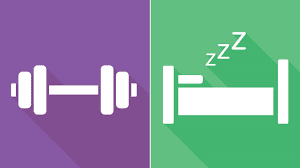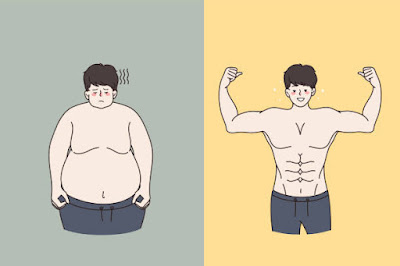In this post, I’ll look at seven effective strategies to gain fellow gymgoers’ attraction, respect, and admiration. Applied with patience and focus, these tips can result in others noticing you and sometimes giving you genuine compliments on your physique, exercise technique or even your personality.
1. Be Confident
It has been well established that people who carry themselves with confidence are more likely to gain the attraction and respect of others. This is a widely recognized psychological concept regarding human behavior, self-confidence, and interpersonal dynamics.
While the level of attraction and the depth of the respect can be debated, it is true nonetheless.
When I speak of confidence in this context, don’t mistake it for arrogance. There is a time and a place for subtle arrogance but the gym is rarely the place.
The reasons for showing confidence are many, but as I refer to it in the gym setting, it can carry over to a few important aspects.
- You’ll be noticed by others, of all genders
- You may be more physically attractive to others
- You’ll be more likely to improve your own
confidence
- You’ll be more likely to perform better in the
gym
Many serious gymgoers, particularly bodybuilders, strength athletes and physique competitors, train by themselves. Even those who have training partners are know for serious focus, avoiding eye contact and social interaction altogether. That is perfectly fine, especially if it allows you to concentrate on your lifts, technique, mental arousal and prevents unnecessary distraction.
But if you’re interested in getting compliments in the gym and being noticed while working out, eye contact and being open to a bit of conversation with others may be a good idea. In fact, part of the demonstration of confidence is the ability to interact with others without fear or hesitation.
So, lift your chin a little higher, avoid hunching over and put your chest out (very slightly). These little tricks that show confidence in the gym are surprisingly effective.
2. Be Humble
Being humble in this sense doesn’t mean being shy or self-deprecating, it simply means that you silently celebrate your achievements and accomplishments with your progress, whether with you level of muscularity, leanness or performance of your lifts.
Recognizing that you’re doing good things for your body, health and, let’s face it, developing a lean, muscular physique, is something that you should be doing.
But being humble in this context means not throwing your achievements in people’s faces but rather remaining quiet about them and let your effort, progress and accomplishments in your body’s development speak for themselves.
3. Don’t Humble Brag
An example of a humble brag in the gym is, “Man, I’ve barely been eating and my new baby is keeping me up at night. It’s a miracle I only benched 300 lbs. today.” Or “My diet is off this week and my bodyweight is up a few lbs. I don’t know why I keep getting complimented on how lean I look.”
In all my years working and training in the gym setting, I’ve heard plenty of humble brags and seen just as many eye rolls in response to said humble brag.
So, don’t do it if you want to be admired in the gym and receive genuine compliments.
4. Don’t Fish for Compliments
Just as bad, if not worse, as humble bragging is fishing for compliments. In many instances this means to make statements or carry yourself in a manner that attempts to illicit compliments from others.
Basically, fishing for compliments means repetitively making statements about your physique, strength or other related aspects of training, diet or exercise that coerce a person to say something positive about you.
For example, telling someone that you think your fat, you’re not lean enough, or you’ll be chubby forever over and over may make someone think it necessary to make a comment to the contrary. They may say something like, “Come on, you’re not fat. Look at how big your arms are. Your chest is huge.”
Or, continuously flexing your biceps in the mirror while making eye contact with someone or changing your body position or proximity to them for the purpose of causing them to notice your muscle development may be considered fishing for a compliment.
To take it a step further, throwing in a humble brag like, “Spotting that guy while he was bench pressing gave me this pump. I’m not even training traps today.” If you think about it, there’s more than one thing wrong with that statement.
Fishing for compliments in the gym is the opposite of being confident. It’s downright pathetic.
5. Don’t Be Creepy
Let’s not forget about interrupting a female while she’s exercising, logging her set, or catching her breath, especially if she has earphones on just to humble brag or something similarity cringy. That is no way to get a genuine compliment in the gym, let alone get a girl’s phone number or setting a romantic date.
These attempts at getting a lady to compliment you during a workout is a bad idea and usually comes across as creepy.
6. Use Good Technique While Lifting Weights
One surefire way to gain the respect of others in the weight room is using good technique while performing your lifts. For the most part, people aren’t as impressed with how much weight you can lift if you perform your exercises with sloppy technique.
Ego lifting is a recipe for injury, eyerolling and even negative opinions. It typically does nothing for building muscle mass, building meaningful strength and certainly not athletism in most sports.
It's one thing to train with what Arnold Schwarzenegger referred to as aggression and joy. Sometimes you have to get fired up for a big lift and test the limits of your strength. That’s fine, even advisable at times, but the practice should be used in moderation without the objective of gaining others respect, attention, or compliments.
What is impressive is the use of sound technique when performing your movements, particularly the basic compound lifts like bench presses, squats, rows, and deadlift variations. In most cases, a person will gain far more respect and admiration if they use proper, controlled technique while performing their exercises, no matter how much weight they are using.
If your purpose is to build as much muscle mass as possible over your whole body, it’s important to implement scientific principles of hypertrophy training, which includes progressive overload using incremental increases in weight, repetitions, and relative intensity. This requires using sound exercise technique to stimulate continuous muscle growth with minimal risk of injury.Also, proper, laser focused attention on muscle tension and proper exercise execution to build the muscle tissue on the biceps, chest and calves is critical. This is especially true when using the highly effective technique of stretch-mediated hypertrophy, particularly when training to build big biceps.
I’m going to throw out a humble brag here myself. Because of my consistent focus on mindful, deliberate exercise execution and near flawless technique, I have been complimented dozens of times. Even when using submaximal weights, it is seemingly impressive to other serious muscle enthusiasts in the gym. Dare I say that this is by far the quality that has gotten me the most complements in the gym. Also, it is important to note that I am humble about my performance, and I never brag and I always try not to be creepy.So, another effective, perhaps the most effective way, to get compliments in the gym is to always try your best to use proper technique while working out and to avoid ego lifting.
You’ll probably become more muscular and develop a lean, jacked physique in the process.
7. Be Consistent
All of these tips for getting compliments in the weight room
work well, especially when applied consistently.
Consistency applies to several important components in this context.
- Consistently showing up to the gym
- Consistently making progress, no matter how small
- Consistently using good technique
- Consistently being confident but humble
Being consistent with all these aspects are more likely to get you compliments in the gym. Most of this happens when they are all applied together. It’s far more likely that you’ll build an impressive lean, muscular physique and get stronger all while making a proven subconscious impression on others through the display of confidence and humility.
Start Getting Compliments
So, fellow muscle enthusiast, go forth and put into practice these tips for getting complimented in the gym and weight room. Start small if you must but be patient and enjoy the compliments as they come.
They may be infrequent at times, but that doesn’t mean that people aren’t watching you with admiration and attraction. Just keep it up and feel good as you get genuine compliments from others in the gym.
Also Read
2 Must-Read Muscle Building Books to Add to Your Library
Build Bigger Arms: 8 Essential Tips for Noticeable Muscle Growth
Compelling Review of Creatine Monohydrate for Muscle Building































